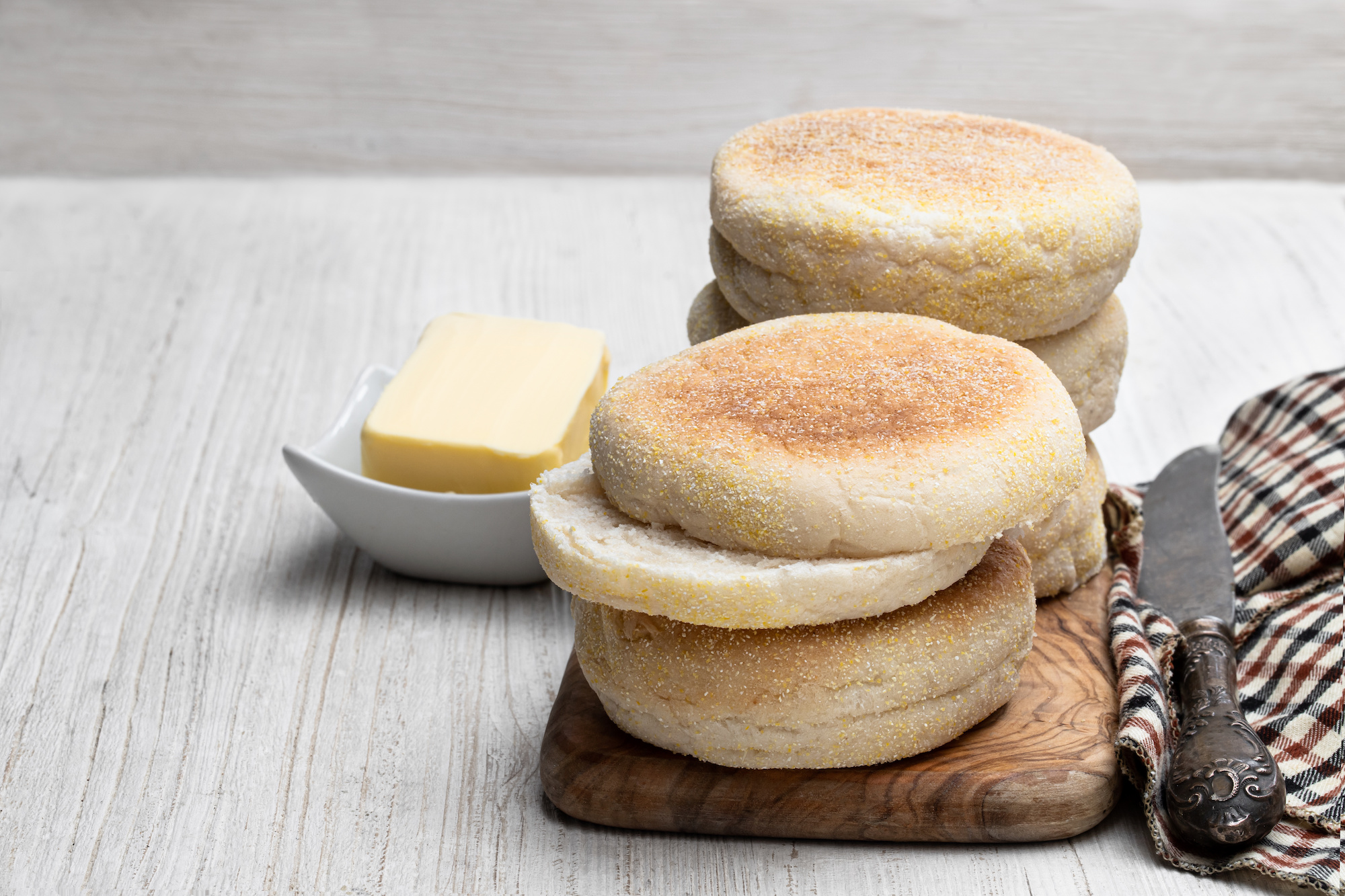
The humble English muffin – a breakfast staple that has earned its place at the table thanks to its versatility and distinctive taste. But do we really know what we’re biting into each morning? In this feature, we’ll reveal 20 English muffin nutrition facts that might surprise you. From macronutrients to micronutrients, and the role they play in your diet, we’ll uncover all.
Caloric Content
Starting with the basics, a typical English muffin contains approximately 120 to 150 calories. This moderate calorie count makes it a good choice for a light breakfast or snack.
Carbohydrates
Carbohydrates are the primary energy source for our bodies. An average English muffin has about 25 grams of carbs, accounting for about 10% of the daily recommended intake.
Protein
English muffins provide a decent protein boost with roughly 4 to 6 grams per muffin. Protein is vital for muscle growth, tissue repair, and overall body function.
Fat
English muffins are low in fat, generally containing less than 1 gram per muffin. This low-fat content makes them a healthy choice for those monitoring their fat intake.
Fiber
An essential part of a balanced diet, fiber aids in digestion and helps maintain a healthy weight. A typical English muffin provides around 2 grams of dietary fiber.
Sugar
While they are low in fat and high in carbs, English muffins contain only about 1-2 grams of sugar. This low sugar content makes them a healthier choice compared to many other breakfast foods.

Whole Wheat vs. White Flour
English muffins made from whole wheat flour pack more fiber and nutrients than those made with white flour. They provide a healthier, more filling option.
Sodium
A single English muffin can contain between 200-300 milligrams of sodium, which is about 10% of the recommended daily intake. Be mindful of this if you’re on a low-sodium diet.
Essential Vitamins
English muffins are fortified with several essential vitamins, including thiamin, riboflavin, and niacin – all of which play crucial roles in energy production.
Mineral Content
In addition to vitamins, English muffins provide essential minerals like iron and calcium, which support blood health and bone strength respectively.
Cholesterol-Free
English muffins are naturally cholesterol-free, making them a heart-healthy choice. However, be mindful of what you pair with your muffin as some toppings can add cholesterol.
Low in Saturated Fat
Most English muffins are low in saturated fat, which helps maintain healthy cholesterol levels and reduces the risk of heart disease.
Versatility for Diets
Whether you’re vegan, vegetarian, or following a specific diet, English muffins can fit into your meal plan. They are typically free of animal products and available in gluten-free varieties.

High Glycemic Index
Despite their many benefits, English muffins have a high glycemic index, which means they can raise blood sugar levels quickly. Those with diabetes should take note.
Enriched vs. Natural Nutrients
Many English muffins are made from enriched flour, which has nutrients added back after processing. However, these are not as beneficial as the naturally occurring nutrients in whole grains.
Healthy Topping Choices
Topping your English muffin with healthy options like avocado, nut butter, or fresh fruit can enhance its nutritional profile and make it more filling.
Portion Control
Because English muffins are pre-portioned, they can aid in portion control and help prevent overeating.
Allergens
Standard English muffins contain wheat and may also contain soy, making them unsuitable for those with certain allergies or sensitivities.
High in Folate
Enriched English muffins are high in folate, a nutrient that’s essential for DNA synthesis and cell division. It’s particularly important for pregnant women.
Fuel for Exercise
The combination of carbs and protein in an English muffin makes it a great pre- or post-workout snack.
Final Word
As you can see, the English muffin is more than just a breakfast item; it’s a versatile and nutritious component that can fit into any diet. Understanding these 20 English muffin nutrition facts allows us to appreciate this unassuming baked good beyond its nooks and crannies. So next time you toast one up, remember, you’re not just enjoying a meal—you’re fueling your body with a variety of essential nutrients.
Was this page helpful?
Our commitment to delivering trustworthy and engaging content is at the heart of what we do. Each fact on our site is contributed by real users like you, bringing a wealth of diverse insights and information. To ensure the highest standards of accuracy and reliability, our dedicated editors meticulously review each submission. This process guarantees that the facts we share are not only fascinating but also credible. Trust in our commitment to quality and authenticity as you explore and learn with us.
